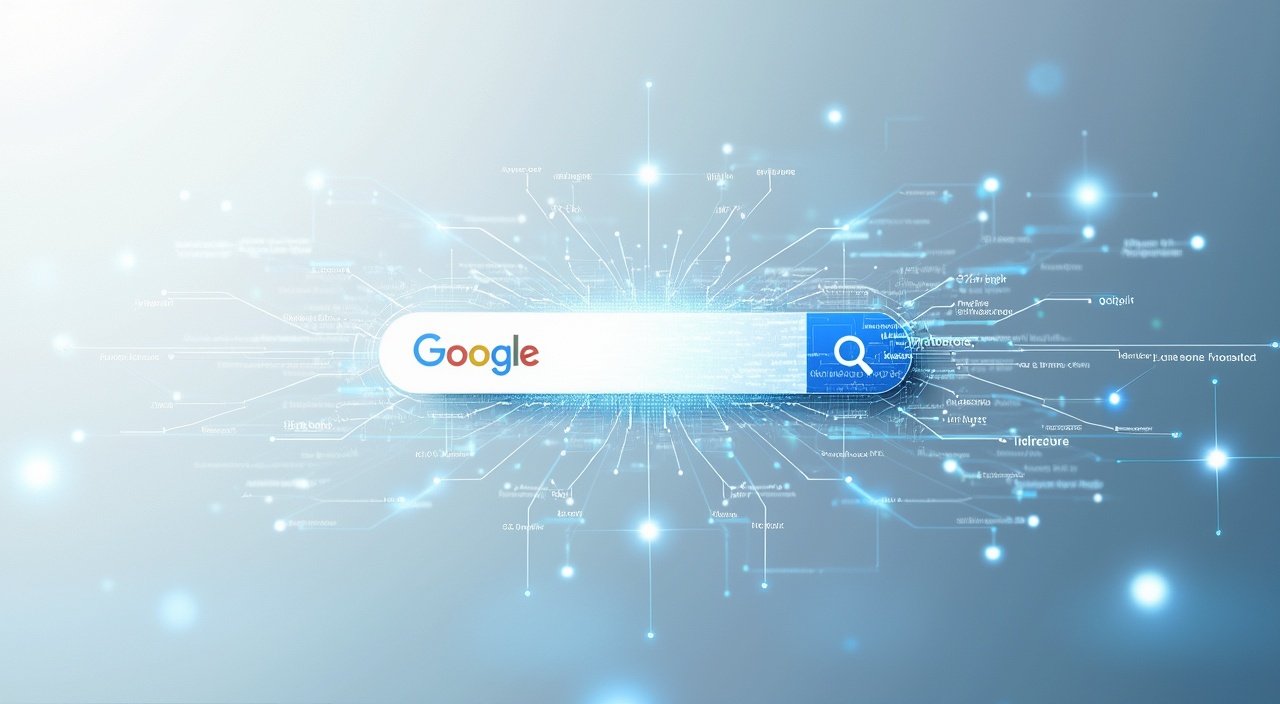The battle between AI chatbots and traditional search engines is reshaping how we find and consume information online. As AI technologies like ChatGPT and Google’s Gemini emerge, users now experience a more conversational and context-aware approach to searching, challenging Google’s long-standing market dominance.
Key Takeaways:
- AI-driven search traffic has surged by 1,200% from July 2024 to February 2025, signaling a dramatic shift in information retrieval
- Chatbots offer synthesized, context-aware answers that feel more natural than traditional keyword searches
- Over half of U.S. shoppers now plan to use AI for shopping decisions and product comparisons
- Traditional search engines like Google still excel in local business information, visual searches, and web breadth
- The future of search is likely a hybrid model combining AI conversational interfaces with traditional search results
The AI revolution has fundamentally altered our information landscape. I’ve watched this transformation unfold rapidly, with AI-powered search capabilities growing at an unprecedented rate. This shift isn’t just about convenience – it represents a complete rethinking of how we interact with digital knowledge.
Strange but true: AI search traffic skyrocketed 1,200% in just seven months. This explosive growth indicates users are quickly adapting to conversational search interfaces rather than traditional keyword queries. The impact on businesses can’t be overstated – those failing to optimize for both traditional and AI search risk becoming invisible to potential customers.
Here’s the twist: Despite chatbots’ growing popularity, Google maintains significant advantages in certain areas. For local business searches, Google’s Maps Pack has become crucial for real growth. Visual searches and comprehensive web indexing remain strengths of traditional search engines that AI models haven’t fully matched.
Consumers have embraced AI for decision-making processes. Recent data shows more than half of American shoppers now rely on AI tools for product research and comparison. This behavioral shift demands businesses adapt their digital presence to serve both human and AI audiences effectively.
Let that sink in.
The distinction between AI chatbots and traditional search isn’t simply technological – it’s philosophical. Chatbots synthesize information and provide direct answers, while search engines primarily connect users to relevant sources. This fundamental difference creates complementary strengths that smart business owners can leverage.
The good news? This transformation creates opportunities for agile entrepreneurs. By understanding both AI-powered search and traditional SEO, businesses can position themselves strategically for the future. Those who master both approaches gain a competitive edge in this changing landscape.
I believe we’re moving toward a hybrid search future. The most successful implementations will combine AI’s conversational strengths with traditional search’s breadth and visual capabilities. These AI aggregators are creating new opportunities by making advanced technology accessible to more businesses.
But wait – there’s a catch: AI models sometimes provide inaccurate information or fail to cite sources properly. This limitation highlights why a balanced approach works best. For businesses, this means maintaining strong traditional search visibility while also optimizing content for AI retrieval.
For entrepreneurs focused on future-proofing their online presence, I recommend these action steps:
- Create content that answers specific questions AI models might receive
- Maintain traditional SEO best practices for Google visibility
- Structure website data to be easily interpretable by both humans and machines
- Monitor how customers discover your business across both search types
The search landscape transformation represents one of many ways AI is revolutionizing business operations. Forward-thinking business owners shouldn’t ask whether to focus on traditional or AI search – they should invest in both.
Picture this: A potential customer asks an AI assistant about services you provide. If your content isn’t optimized for AI retrieval, your competitor gets recommended instead. Meanwhile, another prospect searches Google directly and finds your website at the top. By preparing for both scenarios, you maximize visibility and growth opportunities.
For those looking to stay ahead, understanding AI’s broader impact on business provides valuable context for these search changes. The companies thriving through this transition will be those who adapt quickly while maintaining focus on customer needs across all digital touchpoints.
The AI Search Revolution: How Chatbots Are Rewriting the Rules
Google’s 90% search market dominance faces its first real threat in decades. I’ve watched the landscape shift dramatically as ChatGPT, Perplexity, Claude, Copilot, and Google’s own Gemini fight for our questions.
The Numbers Tell a Stunning Story
The shift is happening faster than anyone predicted. From July 2024 to February 2025, AI-driven traffic to U.S. retail sites jumped by an astonishing 1,200%. Let that sink in.
The good news? This creates fresh opportunities for businesses ready to adapt. But wait—there’s a catch: traditional SEO strategies need a complete rethink.
These AI tools don’t just answer questions—they have conversations, remember context, and often skip the middleman (your website).
Over half of U.S. shoppers now plan to use AI for shopping decisions, according to recent consumer studies.
For business owners thinking about their SEO strategy, this isn’t just a trend—it’s a complete rewrite of the rulebook.
The Chatbot Advantage: Why Users Are Switching
I’ve watched chatbots transform how people look for information online. The shift makes perfect sense when you consider the practical benefits they offer over traditional search.
Chatbots deliver synthesized answers directly, saving you from jumping between multiple websites. Instead of scanning through ten blue links hoping to find what you need, you get a single, coherent response that pulls information together for you.
A More Human Search Experience
The conversational nature of chatbots feels more natural than typing keywords into a search box. You can ask follow-up questions without starting over, and the AI remembers your previous interactions to provide context-aware responses.
This human-like understanding shines in specific areas:
- Recipe searches that adapt to your dietary needs
- Shopping recommendations that compare options for you
- Step-by-step guides that adjust to your skill level
Perhaps the biggest perk? No more scrolling past ads to find what you’re looking for. The information comes to you directly.
Measurable Improvements
The numbers back up the chatbot advantage. Users report finding information significantly faster with AI chatbots than with traditional search engines. Engagement metrics show people spend more time interacting with chatbots, asking multiple questions in a single session.
For complex topics like understanding AI technology, chatbots excel at breaking down information into digestible chunks. Their ability to maintain context throughout a conversation makes learning feel more like talking with a knowledgeable friend than digging through search results.
When Google Still Wins: The Traditional Search Strongholds
I’ve noticed that despite AI chatbots stealing the spotlight, Google still dominates certain search territories with iron-fisted authority.
Google’s Unshakable Advantages
Google shines brightest when I need to find specific websites or pages – something chatbots fumble with constantly. Try asking ChatGPT to take you directly to a specific page on a website, and you’ll quickly see the difference.
Traditional search remains king for:
- Local business information – Google’s integration of Maps, hours, and addresses is far more reliable than what AI chatbots can provide
- Visual and spatial searches – Image search and Maps functionality that chatbots can’t match
- Specialized content discovery – Video indexing and news categorization remain more comprehensive
- Web breadth – Google indexes trillions of pages while chatbots access limited datasets
Let that sink in. Google still commands around 90% of global search market share for good reason. When I need precise local information or specialized search features, I still turn to the search giant first. The traditional Top 10 results remain crucial for many practical needs.

The Shopping Revolution: AI’s Impact on Consumer Behavior
Retail websites have experienced a staggering 1,200% increase in traffic driven by AI technologies. This isn’t just a number—it represents a fundamental shift in how we shop online.
Smart Shopping Assistants
AI chatbots have transformed from simple FAQ tools into sophisticated shopping companions. Unlike traditional search that returns pages of results, AI assistants analyze and compare products directly for you.
“I need hiking boots under $100 that are waterproof and lightweight.”
With this simple prompt, AI tools can:
- Pull data from multiple product listings simultaneously
- Compare prices across different retailers
- Highlight key feature differences between similar products
- Identify which options best match your specific needs
This direct approach cuts my shopping time by more than half compared to traditional browsing and comparison.
Tailored Recommendations That Actually Work
AI has made personalized shopping genuinely useful. By analyzing past purchases, browsing patterns, and stated preferences, these systems create shopping experiences that feel custom-built.
What makes AI shopping recommendations different is their ability to synthesize reviews. Rather than reading dozens of individual opinions, AI provides balanced assessments that highlight both pros and cons. As research on AI agents suggests, this isn’t just about convenience—it’s changing our relationship with consumer decisions.
The combination of instant product comparisons and review analysis has created a shopping environment where I can make confident decisions faster than ever before. The growth in AI retail traffic isn’t slowing down because these tools aren’t just faster—they’re genuinely better at helping us find what we want.

The Dark Side of AI Search: Challenges and Concerns
AI search tools are reshaping how we find information, but this shift comes with significant drawbacks for content creators like me. Traffic to websites has dropped as users get answers directly from AI interfaces without clicking through to source pages. This threatens the entire ecosystem of the open web, where diverse voices and perspectives thrive.
Accuracy and Attribution Problems
AI systems still struggle with factual reliability. I’ve seen these tools confidently present incorrect information—what experts call hallucinations—as if they were facts. Even when the information is correct, proper citation remains problematic. AI tools often fail to clearly attribute sources, making it hard for users to verify information or explore topics deeper.
Economic Fallout
Publishers face a financial crisis as their business models depend on site visits. When AI systems extract and present information without sending traffic to original sources, they cut off revenue streams that support quality journalism and content creation. Let that sink in.
The Hybrid Future: Where Search Is Heading
Google’s making big moves in the AI search arena. I’m watching them build products that combine traditional search results with AI-powered answers – creating what many call “hybrid search.”
Blending Conversations With Results
Search is becoming much more chatty. Rather than just typing keywords and scanning links, I can now have actual back-and-forth conversations with search tools. This shift creates a more natural feeling experience where:
-
• Follow-up questions happen in the same window
• The search remembers my previous questions for context
• Results combine links with direct answers in conversational form
This conversational approach feels more human while still providing the trustworthy sources we need from traditional search.
Smart Specialization Taking Shape
The future isn’t just one search engine to rule them all. I’m seeing specialized AI tools emerging for specific needs:
-
• Domain-specific search assistants for industries like healthcare, legal research, and education
• Personalized search experiences that learn your preferences
• Tools that adjust their interface based on your tech comfort level
These specialized options mean you’ll likely use different search tools for different tasks – one for casual questions, another for deep research, and others for specific professional needs.
The most exciting part? This tech constantly improves from user interactions. Your searches today help make tomorrow’s results better. This creates a cycle where search tools get smarter as more people use them – making the future of finding information faster and more accurate than ever before.
Sources:
• TechCrunch – ChatGPT: Everything to Know About the AI Chatbot
• TechRadar – The Ultimate AI Search Face-Off
• Orange SEO – Is SEO Dying? The Truth About AI, Chat, Google and the Future of Search
• Search Influence – The Future of Search, SEO and AI Impacts Explained
• Beans Talk – Impact of Generative AI on Search Traffic and Content Visibility








